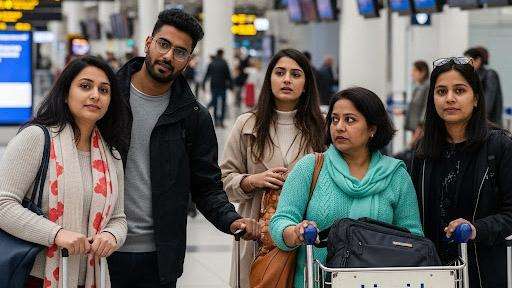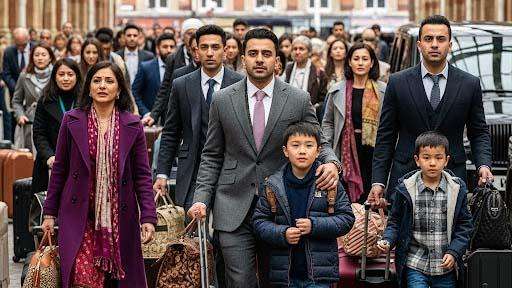The global Muslim travel market is experiencing unprecedented growth, with international Muslim arrivals soaring to 176 million in 2024, a significant 25% increase from 2023 and 10% above pre-pandemic 2019 levels. This robust expansion is set to continue, with projections indicating a remarkable 245 million Muslim travellers by 2030, collectively spending an estimated US$230 billion. These compelling figures were unveiled today at the fifth Halal in Travel Global Summit 2025 in Singapore, based on the latest Mastercard-CrescentRating Global Muslim Travel Index (GMTI).
The annual GMTI study underscores the escalating influence and economic potential of this demographic, which is projected to reach 2.54 billion by 2035, positioning Muslim travellers as a crucial tourism source market for destinations worldwide.
A key takeaway from the GMTI 2025 is the evolving profile of the modern Muslim traveller. The study highlights a clear shift towards more independent and conscious journeys. This trend is particularly evident in the rise of solo and female Muslim travellers, who are increasingly seeking empowerment, safety, and autonomy in their travel experiences.
Travel motivations are also diversifying beyond traditional leisure. There's a growing demand for purpose-led experiences, including regenerative tourism focused on restoring local ecosystems, digital detox retreats aligning with faith values of mindfulness, and sports tourism adapted to family and faith-specific needs. This signals a strong preference for personalised, inclusive, and meaningful travel options that cater to a broader range of abilities and interests, pushing destinations to move beyond standard holiday packages.
The study further emphasizes the need for the travel industry to integrate faith-related awareness into technological advancements, such as the use of robots and humanoids in operations, and the development of smart apps for Muslim tourists. Greater attention to accessible tourism and the blending of inclusive design with faith-specific needs are also crucial, alongside a stronger consideration for the unique requirements of female Muslim travellers.
Fazal Bahardeen, founder of CrescentRating, elaborated on the GMTI 2025 findings, stressing the importance of understanding and catering to active senior travellers. "Global birth rates are plummeting and lifespans are extending. That has a huge impact on tourism; accessible tourism is going to be a lot more important," he noted. Last year, the GMTI introduced accessible travel asset metrics, and this year, it further deepened its focus on active seniors, recognizing them as "one of your most important segments going forward, because of the (population) and their spending power."
Senior travel, defined as individuals aged 60 and above, currently accounts for 15% of the global travel market, with its value projected to reach a staggering US$2.63 trillion by 2030. This demographic allocates over 50% of its discretionary spending to leisure and travel. Their flexibility to travel during off-peak seasons and tendency for longer, more relaxed journeys present high-value opportunities for travel industry stakeholders seeking to tap into a resilient and expanding market.
While the outlook for Muslim travel is undeniably positive, Bahardeen also cautioned against potential "disruptive forces." These include unpredictable geopolitical and economic conditions that could impact visitor flows, the threat of AI to job security and basic income potentially affecting discretionary travel spending, and the concerning rise of anti-Muslim rhetoric, where even the slightest perception of not being welcome could erode travel confidence.
As with every annual edition, the GMTI 2025 also ranked top-performing destinations in the Muslim travel market. Among Organisation of Islamic Cooperation (OIC) destinations, Malaysia once again secured the top spot, followed by Turkiye and Saudi Arabia in second and third place, respectively. The UAE and Indonesia rounded out the top five.
In the non-OIC category, Singapore maintained its position as the top destination, with the UK, Hong Kong, and Taiwan following. Notably, Thailand and the Philippines are steadily emerging as rising Muslim-friendly destinations within Southeast Asia.
The GMTI 2025 marks the 11th year of collaboration between Mastercard and CrescentRating, and the 10th consecutive year of their joint annual study, solidifying its position as the definitive barometer for the global Muslim travel market.
The full report can be downloaded for here: Crescentrating








.svg)



_1.jpg)